Collaborations
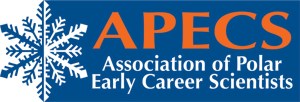 APECS
APECS
The Association of Polar Early Career Scientists (APECS) is an international and interdisciplinary organization for undergraduate and graduate students, postdoctoral researchers, early career faculty members, early career professionals, educators and others with interests in Polar and Alpine regions and the wider cryospherePlaces on earth where water is in its solid form, frozen into ice or snow. This includes polar regions but also high altitude areas (high mountains). In a region's winter,... More. APECS’ goals include creating opportunities for the development of innovative, international, and interdisciplinary collaborations among current early career polar researchers as well as recruiting, retaining and promoting the next generation of polar enthusiasts.
 ArcticNet
ArcticNet
ArcticNet is a Network of Centres of Excellence of Canada that brings together scientists, engineers, and managers in the natural, human health and social sciences with their partners from Inuit organizations, northern communities, federal and provincial agencies and the private sector to study the impacts of climate change in the Canadian North. A Memorandum of Understanding has been signed between INTERACT and ArcticNet. This collaboration promotes scientific cooperation, encourages the exchange of knowledge, and fosters the creation of synergies in Arctic research between facilities, researchers, and nations. More information about ArcticNet can be found on their website.
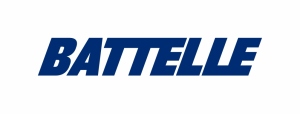
Battelle Memorial Institute is a private nonprofit applied science and technology development company committed to science and technology for the greater good. Battelle manages the National Ecological Observatory Network, NEON, which is an observation facility designed to collect long-term open access ecological data to better understand how U.S. ecosystems are changing. A Memorandum of Cooperation has been signed between INTERACT and Battelle Memorial Institute to support both organisations’ respective activities in the ArcticDefinitions of the Arctic vary according to environmental, geographical, political, cultural and scientific perspectives. Some scientists define the Arctic as areas having a high latitude, long winters, short, cool summers,... More and enhance the science and logistics of their respective user groups, and also to seek opportunities to work together, i. e. through workshops or education activities.
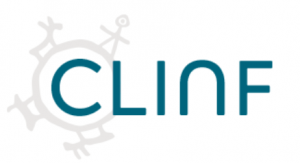 CLINF (Climate-change effects on the epidemiology of infectious diseases, and the associated impacts on Northern societies) is a Nordic Centres of Excellence that operate under the auspices of the overarching NordForsk programme “Responsible development of the ArcticDefinitions of the Arctic vary according to environmental, geographical, political, cultural and scientific perspectives. Some scientists define the Arctic as areas having a high latitude, long winters, short, cool summers,... More: Opportunities, challenges, and pathways to action”. CLINF addresses the broad scenario of warming northern landscapes, that may attract vector organisms such as ticks, mosquitoes, and rodents. These have the potential of carrying new zoonotic infections onto humans and husbandry animals of the North. With Far-North societies being generally dependent on their husbandry animals, i.e. by terms of economy, status, and tradition, an altered exposure towards infectious diseases may strike at the very heart of northern cultures. CLINF operates at high latitudes “from Nuuk to Yakutsk”, i.e. from western Greenland to the Russian Pacific. As part of their enterprise, CLINF procures and shares international diseases data, together with complementary data concerning landscape and weather characteristics, throughout their vast study region. INTERACT has signed a Memorandum of Understanding with CLINF to learn more about new infectious diseases and ways to monitor them. For more information about CLINF please visit www.clinf.org
CLINF (Climate-change effects on the epidemiology of infectious diseases, and the associated impacts on Northern societies) is a Nordic Centres of Excellence that operate under the auspices of the overarching NordForsk programme “Responsible development of the ArcticDefinitions of the Arctic vary according to environmental, geographical, political, cultural and scientific perspectives. Some scientists define the Arctic as areas having a high latitude, long winters, short, cool summers,... More: Opportunities, challenges, and pathways to action”. CLINF addresses the broad scenario of warming northern landscapes, that may attract vector organisms such as ticks, mosquitoes, and rodents. These have the potential of carrying new zoonotic infections onto humans and husbandry animals of the North. With Far-North societies being generally dependent on their husbandry animals, i.e. by terms of economy, status, and tradition, an altered exposure towards infectious diseases may strike at the very heart of northern cultures. CLINF operates at high latitudes “from Nuuk to Yakutsk”, i.e. from western Greenland to the Russian Pacific. As part of their enterprise, CLINF procures and shares international diseases data, together with complementary data concerning landscape and weather characteristics, throughout their vast study region. INTERACT has signed a Memorandum of Understanding with CLINF to learn more about new infectious diseases and ways to monitor them. For more information about CLINF please visit www.clinf.org
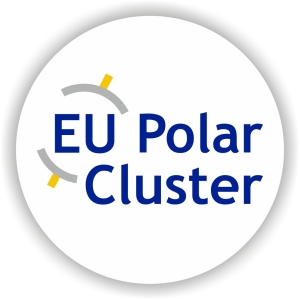 EU Polar Cluster
EU Polar Cluster
The EU Polar Cluster is a network of Horizon 2020 and a Framework Programme 7 funded polar projects. Currently it comprises of 21 projects: APPLICATE, ARCSAR, ARICE, ArcticHubs, Beyond EPICA, BLUE-ACTION, CAPARDUS, CHARTER, ECOTIP, EU-PolarNet, FACE-IT, FORCeS, iCUPE, INTAROS, INTERACT, JUSTNORTH, KEPLER, FORCES, SO-CHIC, TiPACCs and NUNATARYUK. The cluster thus merges a broad spectrum of research and coordination activities – ranging from the most up-to-date findings on permafrostPermafrost is frozen ground that remains at or below zero degrees Celsius (32 degrees Fahrenheit) for two or more years. It forms in regions where the mean annual temperature is... More and sea ice, from enhancing observation to improving predictions, and from networking research stations to coordinating access to icebreakers.
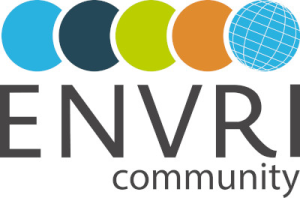 ENVRI Community
ENVRI Community
The ENVRI community is a community of Environmental Research Infrastructures, projects, networks and other diverse stakeholders interested in environmental Research Infrastructure matters. The community also includes e-infrastructures supporting the Research Infrastructures in data solutions. ENVRI-FAIR connects the Environmental Research Infrastructure (ENVRI) community to the European Open Science Cloud (EOSC).
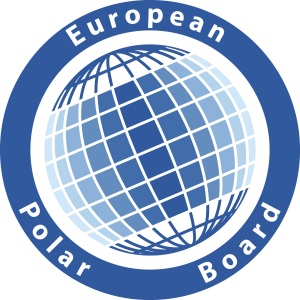 European Polar Board
European Polar Board
The European Polar Board (EPB) is an independent organisation focused on major strategic priorities in the ArcticDefinitions of the Arctic vary according to environmental, geographical, political, cultural and scientific perspectives. Some scientists define the Arctic as areas having a high latitude, long winters, short, cool summers,... More and Antarctic. EPB Members include research institutes, logistics operators, funding agencies, scientific academies and government ministries from across Europe. The EPB has a mission to improve European coordination in ArcticDefinitions of the Arctic vary according to environmental, geographical, political, cultural and scientific perspectives. Some scientists define the Arctic as areas having a high latitude, long winters, short, cool summers,... More and Antarctic research through improved information sharing, optimised infrastructure use and joint initiatives between Members.
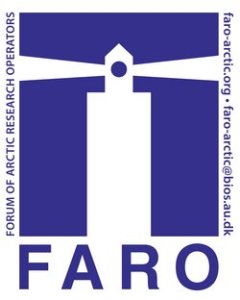 Forum of Arctic Research Operators
Forum of Arctic Research Operators
Forum of Arctic Research Operators (FARO) is a country membership organization that promotes dialogue on logistics and operational support for scientific research in the ArcticDefinitions of the Arctic vary according to environmental, geographical, political, cultural and scientific perspectives. Some scientists define the Arctic as areas having a high latitude, long winters, short, cool summers,... More. FARO facilitates information exchange, establishment of cooperation and development of new ideas among national operators of ships, stations and aircrafts in the ArcticDefinitions of the Arctic vary according to environmental, geographical, political, cultural and scientific perspectives. Some scientists define the Arctic as areas having a high latitude, long winters, short, cool summers,... More. FARO enables countries to optimize logistics and operational support for scientific research in the ArcticDefinitions of the Arctic vary according to environmental, geographical, political, cultural and scientific perspectives. Some scientists define the Arctic as areas having a high latitude, long winters, short, cool summers,... More. FARO is operated by an Executive Committee (ExCom) drawn from its membership with an overall Chair of the organisation. A FARO secretariat supports the organisation.
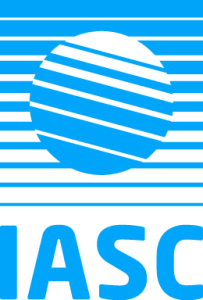 IASC
IASC
The International Arctic Science Committee (IASC) is a non-governmental, international scientific organization. Overall, IASCInternational Arctic Science Committee, a non-governmental organisation whose aim is to encourage and aid cooperation in Arctic research.... More promotes and supports leading-edge interdisciplinary research in order to foster a greater scientific understanding of the ArcticDefinitions of the Arctic vary according to environmental, geographical, political, cultural and scientific perspectives. Some scientists define the Arctic as areas having a high latitude, long winters, short, cool summers,... More region and its role in the Earth system. Rather than defining human and environmental boundaries, IASCInternational Arctic Science Committee, a non-governmental organisation whose aim is to encourage and aid cooperation in Arctic research.... More tries to bridge those boundaries. IASCInternational Arctic Science Committee, a non-governmental organisation whose aim is to encourage and aid cooperation in Arctic research.... More is also committed to recognizing that Traditional Knowledge, IndigenousBelonging to a certain place. Indigenous people are distinct ethnic groups that have historic connections to people who lived in a territory prior to the area being colonized or coming... More Knowledge, and “Western” scientific knowledge are coequal and complementary knowledge systems, all of which can and should inform the work of IASCInternational Arctic Science Committee, a non-governmental organisation whose aim is to encourage and aid cooperation in Arctic research.... More.
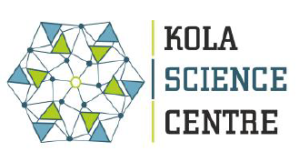 Kola Science Centre
Kola Science Centre
Federal Research Centre Kola Science Centre of the Russian Academy of Sciences is a comprehensive scientific institution that carries out fundamental studies of high-latitude environment in the Euro-Arctic region and provides a scientific basis for assessing the resource potential and developing a rational strategy for the North by implementing interdisciplinary and multidisciplinary research. FRC KSC RAS is the only Federal Research Centre in Russia entirely located beyond the Arctic CircleA line of latitude currently at 66° 33? 44? (66.5622°) north of the Equator. It is the southern limit of the region of the Earth that experiences the 'midnight sun'.... More. At present, the Centre comprises 10 research institutes and an extensive network of support units and experimental areas, located across vast ArcticDefinitions of the Arctic vary according to environmental, geographical, political, cultural and scientific perspectives. Some scientists define the Arctic as areas having a high latitude, long winters, short, cool summers,... More territories. This MoU will promote scientific cooperation between INTERACT and Kola Science Centre and especially encourage the exchange of knowledge and foster the creation of synergies in ArcticDefinitions of the Arctic vary according to environmental, geographical, political, cultural and scientific perspectives. Some scientists define the Arctic as areas having a high latitude, long winters, short, cool summers,... More research between facilities and researchers.

Naturae Observatio
Naturae Observatio is a self funded joint research activity; a collaboration between INTERACT and IK Foundation. The privately funded IK Foundation has taken the initiative to develop the next generation of scientific Field Stations. The work with the field station “Naturae Observatio” is a long-term project, a practical and theoretical enterprise, aiming to establish eco-designed automatic Field Stations, which unattended during night and day, all year-round will observe a selected landscape and its life. Their work is presented in this film. Find out more about IK Foundations unmanned field stations at their website.

SIOS – Svalbard Integrated Arctic Earth Observing System
SIOS is a regional observing system for long-term measurements in and around Svalbard addressing Earth System Science questions. SIOS focuses on processes and their interactions between the different spheres, i.e. biosphere, geosphere, atmosphere, cryospherePlaces on earth where water is in its solid form, frozen into ice or snow. This includes polar regions but also high altitude areas (high mountains). In a region's winter,... More and hydrosphere. By bringing many types of observations together and asking questions about how these are influenced by each other SIOS generates new insights about the Svalbard region’s role in the Earth system. Thus, SIOS offers unique opportunities for research and the long-term acquisition of fundamental knowledge about global environmental change.
